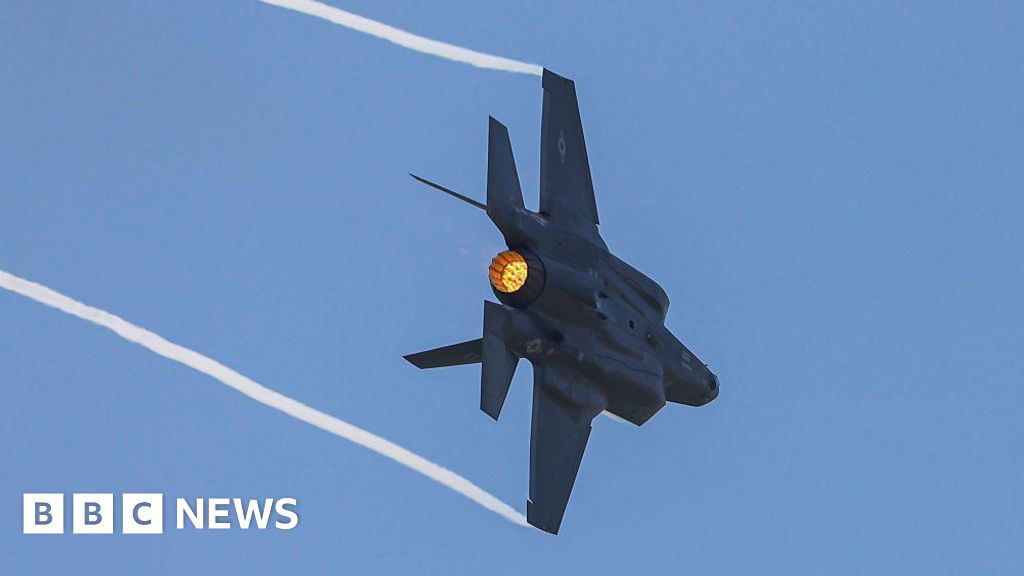
The UK’s High Court has ruled that the export of F-35 fighter jet components to Israel is lawful, a decision that has sparked significant debate. The ruling comes despite concerns over the use of these parts in conflicts that may violate international law, particularly in the Gaza Strip.
The court’s decision follows the suspension of approximately 30 arms export licenses to Israel last September. This suspension was implemented due to fears that UK-made weapons could be used in violations of international law in Gaza. The government argued that withdrawing from the F-35 defence program could jeopardize international peace and the UK’s strategic alliances.
Legal and Political Context
The case was brought to court by campaigners, including al-Haq, a group based in the Israel-occupied West Bank, and the Global Legal Action Network. They sought to halt the transfer of British-made spare parts for the US-produced F-35 jets to Israel. However, the High Court determined that it lacked the constitutional authority to intervene in this matter.
The judges clarified that their decision was not about whether the UK should supply arms to Israel, as the government had already decided against it. Instead, the court was tasked with determining whether the UK should withdraw from a multilateral defence collaboration due to potential misuse of UK-manufactured parts in Gaza.
“Under our constitution, that acutely sensitive and political issue is a matter for the executive which is democratically accountable to parliament and ultimately to the electorate, not for the courts,” the judges ruled.
Reactions and Implications
The ruling has drawn criticism from human rights organizations. Sacha Deshmukh, chief executive of Amnesty International UK, emphasized that the judgment does not alter the dire situation in Gaza, where civilians face severe hardships.
“The horrifying reality in Gaza is unfolding in full view of the world: entire families obliterated, civilians killed in so-called safe zones, hospitals reduced to rubble, and a population driven into starvation by a cruel blockade and forced displacement,” Deshmukh stated.
Oxfam, which provided evidence to the court, expressed its disapproval, highlighting the moral implications of continuing to license the sale of components for F-35 jets. The organization pointed out that these jets are used in attacks that deliberately target civilians and essential infrastructure in Gaza.
Yasmine Ahmed, UK director of Human Rights Watch, criticized the court’s deference to the executive branch, arguing that it leaves Palestinians in Gaza without the protections of international law.
“Judicial deference to the executive in this case has left the Palestinians in Gaza without access to the protections of international law, despite the government and the court acknowledging that there is a serious risk that UK equipment might be used to facilitate or carry out atrocities against them,” Ahmed remarked.
Strategic and Diplomatic Considerations
The UK government maintains that its participation in the F-35 program is crucial for maintaining strategic alliances, particularly with the United States and NATO. Business Minister Jonathan Reynolds faced a difficult decision: accept the F-35 carve-out or withdraw from the program entirely, with all the ensuing defence and diplomatic consequences.
The government argued that pulling out of the program could undermine US confidence in the UK, potentially affecting NATO’s cohesion. The court’s decision to uphold the government’s stance reflects these broader geopolitical considerations.
UK industry contributes approximately 15% of every F-35, according to the Campaign Against the Arms Trade. This economic factor also plays a role in the government’s decision-making process regarding defence exports.
Future Outlook
The government has stated that it will continue to review its defence export licensing policies. A spokesperson affirmed the court’s support for the government’s decision-making process, describing it as thorough and lawful.
Meanwhile, lawyers representing the human rights groups involved in the case are contemplating possible grounds for an appeal. The ongoing debate highlights the complex interplay between legal, ethical, and strategic considerations in international arms trade.
As the situation in Gaza remains critical, the UK’s role in the global defence industry continues to be scrutinized, with implications for both domestic policy and international relations.





